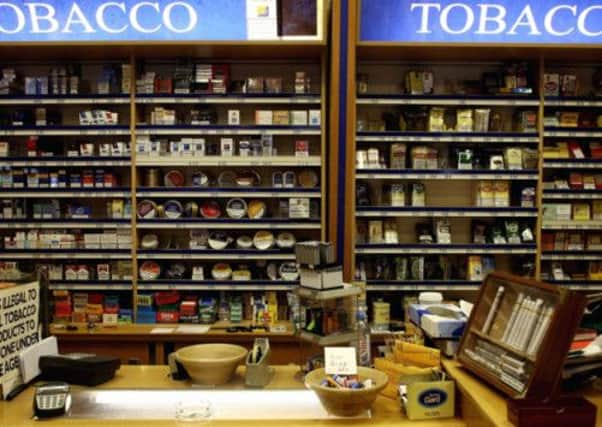Plain to see why Big Tobacco has such a resistance


Recently I witnessed an international gangster swearing loudly at a slight on his “professionalism” as a cigarette counterfeiter.
How dare the tobacco industry claim that the introduction of standardised packaging would make his illegal trade easier, he snarled? Their suggestion that markets would be flooded with illicit tobacco because “plain” packs are easier to copy was nonsense, said the crook.
Advertisement
Hide AdAdvertisement
Hide AdOf course, the gangster wasn’t real. He was just a very convincing actor, appearing in a video clip produced by health agencies to counter Big Tobacco’s burgeoning misinformation campaign over plain packaging.


But the actor’s message was genuine – there is no reason why standardised tobacco packaging should make the job of counterfeiters easier.
Tobacco products sold in standardised packaging have the same type of lettering used for all brand names so they don’t stand out too much. But so-called plain packs are actually quite sophisticated. Corporate branding is removed, but security markings remain, along with large picture health warnings and consumer information, which cover most of the pack area. The strong images show the horrific effects of smoking – cancer, cardiovascular disease, respiratory disorders, stroke and many more.
So why are tobacco barons so keen to denigrate plain packs? Because they will deprive tobacco companies of one of their last, very powerful, marketing tools to promote their products.
Reduce attractiveness of tobacco
A large number of published trials show that standardised packaging for tobacco will reduce its attractiveness, especially to young people.
As well as being off-putting to potential new recruits to smoking, the packs reduce mistaken ideas about brands such as the myth that cigarettes in lighter packaging are less harmful. Plain packs also increase the prominence and effectiveness of health warnings.
Now that the Scottish Government is committed to the introduction of plain packs, with legislation planned for 2014-15, we expect to see a growing offensive against the vital health initiative from the tobacco companies. MSPs must be on their guard against industry lobbying.
Cigarette companies have a long and unworthy tradition of attempting to derail health measures that impact on their business, often through funding others to do their work for them.
Advertisement
Hide AdAdvertisement
Hide AdExperience tells us to watch out for legal challenges to the move. We also expect a series of reports from think-tanks and other bodies, paid for by tobacco companies, predicting economic and social ruin if they are not allowed to promote their addictive products in flashily-designed, branded packs.
Recently, we saw an early skirmish in the plain packs offensive when the Scottish Grocers’ Federation claimed that Scots don’t want them.
TRA funded by tobacco companies
But the organisation, which has financial links to tobacco companies, is wrong. Independent opinion polls show majority support for the measure among the public.
The Tobacco Retailers’ Alliance (TRA), recently asserted that the “worsening” illicit trade in tobacco is making one in ten Scottish retailers contemplate shutting up shop. But look more closely. The TRA is an organisation wholly funded by tobacco companies.
And that growing smuggling trade they mention? It isn’t happening according to HM Revenue and Customs’ figures. The UK black market share for cigarettes and hand-rolled tobacco has been in decline for a decade.
Up pops the Centre for Economic and Business Research (CEBR), with a study, paid for by tobacco company Philip Morris, which claims the GDP of Northern Ireland will reduce by 0.4 per cent to 0.7 per cent due to plain packs. “Plain cigarette packs ‘will cost 3,000 jobs’ ”, the headlines scream.
The same scare stories were wheeled out, usually by researchers paid by Big Tobacco money, when Australia introduced this legislation last year, yet ten months after implementing standardised packs, the dire predictions have not come to pass.
The chief executives of multinational tobacco companies are among the hardest-nosed business interests around. Their eye is fixed on the bottom line.
Advertisement
Hide AdAdvertisement
Hide AdYet something has persuaded them to spend millions of pounds opposing the introduction of standardised packs for tobacco.
Perhaps they believe it will work.
• Sheila Duffy is chief executive of ASH Scotland